Showing 73–84 of 296 results
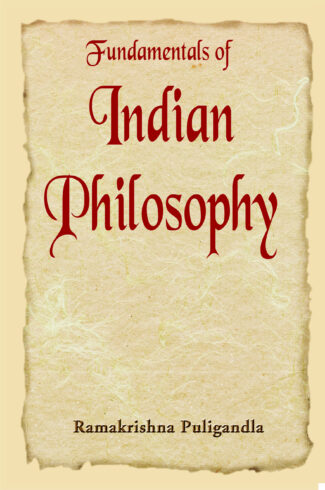
Dr. Puligandla deals with the essentials of Indian philosophy, emphasising its methods, temper and goals while delving into specificities. Major schools of the philosophic tradition (Carvaka materialism, Jainism, Buddhism, Yoga, Vedanta among them) are thoroughly analysed.
Indian philosophy reflects some of the earliest thought-traditions in human history. Its foundations can be traced to ancient minds and their capacity for insatiable curiosity and constant meditation. The Indian thinkers of old aimed their pragmatic philosophies at not just the satisfaction of intellectual curiosity or pursuit of theoretical truths but actually the assimilation of intellectually discerned and established truths into ones own personality for a life of freedom and enlightenment. This is true of modern Indian philosophers, like Sri Aurobindo and Dr. Radhakrishnan, as well. Fundamentals of Indian Philosophy reflects the vastness and richness of this philosophic tradition in a comprehensive and all-embracing yet compact presentation that lays bare the essentials of Indian philosophy. Dr. R. Puligandla takes special care to emphasise the methods, temper and goals of Indian philosophy even while delving into the specificities. All the major schools of the philosophic tradition are objectively and thoroughly analysed the Carvaka materialism, Jainism, Buddhism, Yoga, Vedanta among them. The author details the undeniably bold and original ideas of the Indian thinkers that awe the reader at times with their brilliant insight and element of truth in an approach sincerely aimed at an all-round understanding of the basics of Indian philosophy. This survey not only introduces the readers to issues and answers but also goes to provide the necessary motivation and resources for further study. Complete with an extensive index and a glossary of Sanskrit terms, this text book would prove to be invaluable for students keen to acquire a thorough grounding in the subject. It will also serve as an indispensable reference book for professors and scholars of Indian philosophy.

Dr. Puligandla deals with the essentials of Indian philosophy, emphasising its methods, temper and goals while delving into specificities. Major schools of the philosophic tradition (Carvaka materialism, Jainism, Buddhism, Yoga, Vedanta among them) are thoroughly analysed.
Indian philosophy reflects some of the earliest thought-traditions in human history. Its foundations can be traced to ancient minds and their capacity for insatiable curiosity and constant meditation. The Indian thinkers of old aimed their pragmatic philosophies at not just the satisfaction of intellectual curiosity or pursuit of theoretical truths but actually the assimilation of intellectually discerned and established truths into ones own personality for a life of freedom and enlightenment. This is true of modern Indian philosophers, like Sri Aurobindo and Dr. Radhakrishnan, as well. Fundamentals of Indian Philosophy reflects the vastness and richness of this philosophic tradition in a comprehensive and all-embracing yet compact presentation that lays bare the essentials of Indian philosophy. Dr. R. Puligandla takes special care to emphasise the methods, temper and goals of Indian philosophy even while delving into the specificities. All the major schools of the philosophic tradition are objectively and thoroughly analysed the Carvaka materialism, Jainism, Buddhism, Yoga, Vedanta among them. The author details the undeniably bold and original ideas of the Indian thinkers that awe the reader at times with their brilliant insight and element of truth in an approach sincerely aimed at an all-round understanding of the basics of Indian philosophy. This survey not only introduces the readers to issues and answers but also goes to provide the necessary motivation and resources for further study. Complete with an extensive index and a glossary of Sanskrit terms, this text book would prove to be invaluable for students keen to acquire a thorough grounding in the subject. It will also serve as an indispensable reference book for professors and scholars of Indian philosophy.
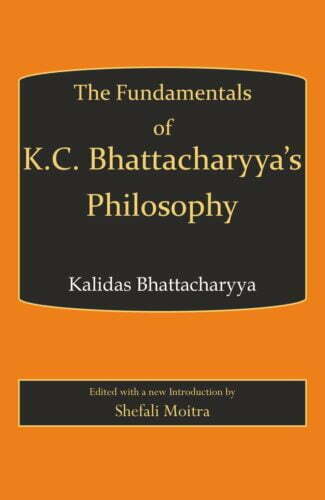
This monograph deals with Krishnachandra Bhattacharyyas epistemic and metaphysical line of thought from the definite to the indefinite, from the objective level to the higher levels of subjectivity, and from association to dissociation or freedom leading to an alternation between knowledge and freedom.
The Fundamentals of K.C. Bhattacharyyas Philosophy is the only exhaustive exposition of Krishnachandra Bhattacharyyas seminal philosophical ideas. Kalidas Bhattacharyya, son of Krishnachandra Bhattacharyya, had the opportunity of a prolonged critical exposure to this unique tradition. This monograph deals with Krishnachandra Bhattacharyyas epistemic and metaphysical line of thought from the definite to the indefinite, from the objective level to the higher levels of subjectivity, and from association to dissociation or freedom leading to an alternation between knowledge and freedom. Both definiteness and indefiniteness have been identified. The two, however, do not have a coordinate status. There is an alternation between them. One and the same situation could be alternatively understood as definite or as indefinite. This leads to Krishnachandra Bhattacharyyas well-known philosophical position of Alternative Standpoints.
The indefinite has to be made definite through layers of transcendental knowledge. The absolute-as-transcendental-knowledge is related to the understanding of the absolute-as-transcendental-will. The predatory outlook of the scientific intellect has been referred to and insightful correctives have been offered. Krishnachandra Bhattacharyyas style of writing is commensurate with the rigour and subtlety of his philosophy. The uninitiated requires a roadmap. This need is amply fulfilled by the present work. The monograph focuses on epistemology and metaphysics.
The insights gained through this faithful commentary will help advanced readers to develop their own philosophical pursuits and the beginner will receive a good grounding.
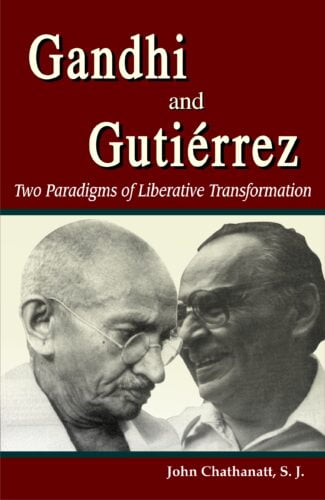
This book examines two paradigmatic figures: Gandhi Mahatma or Father of our Nation, and Gutierrez Father of Liberation Theology. The probe expounds the meaning of liberation, by citing the areas of agreements and differences between them. Consequently they come about as mutually enriching.
This book examines two paradigmatic figures, Mohandas Karamchand Gandhi and Gustavo Gutierrez, both involved in the struggle for liberation in their respective contexts. The former successfully led Indias freedom struggle against the British, evolving in the process a unique paradigm rooted in the religious perceptions. He was called the Mahatma as well as the Father of our nation. The latter attempted to reflect and articulate a theology of liberation in the context of the exploitation prevalent in Latin America, and has been rightly called the Father of Liberation Theology. As we grope today for non-violent, harmonious and effective ways of social transformative action and conflict resolution in a world torn by violence, strife and enmity, a comparative study and a mutual conversation of these two paradigmatic figures can offer enormous insights. This is attempted here in the hope of identifying some features of an economic-political ethics and thus move toward a clearer paradigm of liberative transformation in the Indian context.
The probe shows us the meaning of liberation and the foundational bases of the liberative agenda so as to assess their adequacy, coherence and comprehensiveness of the paradigms used. Areas of agreements as well as points of differences between the two authors are closely looked at. It is found that there are areas at which Gandhi and Gutierrez meet. There are also differences in their social analysis. These differences are significant as they affect their prescriptions for action. There is here a fascinating comparison between the Ahimsatmak Satyagraha of Gandhi and the Drinking From Our Own Wells of Gutierrez. Finally, it is shown that both the thinkers and their systems stand not in opposition to one another but mutually enrich to produce an adequate paradigm of liberative transformation applicable in our contemporary context especially that of India.
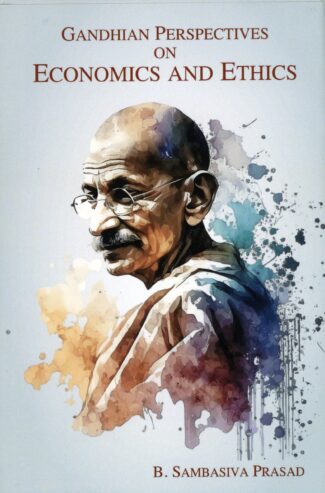
The book explores the ethical foundations of Gandhian economic order and discusses their relevance to the modern times. It also compares Gandhian economic ideals with those of classical thinkers and the modern scholars. The economic ideals and practices of Gandhi are centred round two fundamental principles – truth and non-violence. Gandhian thought, economics and ethics go together.
The book explores the ethical foundations of Gandhian economic order and discusses their relevance to the modern times. It also aims at comparing Gandhian economic ideals with those of classical thinkers like Adam Smith, John Ruskin and Karl Marx, and the modern scholars like Kumarappa, Schumacher, Amartya Sen and John Rawls. The Indian and Western influences, along with British imperialism, have shaped Gandhian economic philosophy. The economic ideals and practices of Gandhi are centred round two fundamental principles – truth and non-violence. Gandhian thought, economics and ethics go together. There is no distinction between them. The relation between economics and ethics works both ways. Gandhian economics is service economy. It is based upon selfless service and altruism. It transforms economics from positive science to normative science. Gandhian economics is not pure economics. It is holistic in nature. To Gandhi, economic questions cannot be isolated. They are interrelated with social, political and religious matters. Gandhian economics is man centred, not money centred. The notions of swaraj, svadeshi, bread labour, aparigraha, trusteeship, sarvodaya, constructive programme, decentralized economy, critique of industrial civilization and economy of permanence are discussed, under the backdrop of Gandhian economics. Finally, an estimate of Gandhian economic order is presented. Economic transformation is possible when there is a change from economic man to Gandhian man; if not, Gandhi’s dream of economic order will remain as a pipedream.
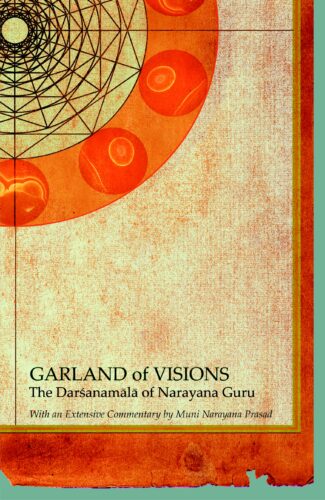
In his most important Sanskrit work Darshanamala, Narayana Guru adopts uncharted method of viewing the non-dual Brahman leaving the student-seeker to intuitively perceive one ineffable Reality. The ancient Upanishadic wisdom is thus condensed and restated by the Guru in the Age of Science. How brahmavidya naturally becomes the Science of all sciences.
In his most important Sanskrit work Darsanamala, Narayana Guru adopts a hitherto uncharted method of viewing the non-dual Brahman from ten different philosophical vantage points and leaving the student-seeker to intuitively perceive on one’s own the one ineffable Reality. The ancient Upaniùadic wisdom is thus condensed and restated by the Guru in terms comprehensible to the mind-set of the Age of Science. How brahmavidya naturally becomes the Science of all sciences (sarva-vidya-pratistha) is also implicit in the Guru’s restatement of Vedantic wisdom. The present commentary explicates how a genuine seeker could make use of the text for the realization of Brahman as the Reality that constitutes the being of himself or herself, and how each of its ten chapters lay bare a particular facet of Brahman fully resonant with the frame of reference of the chapter concerned.
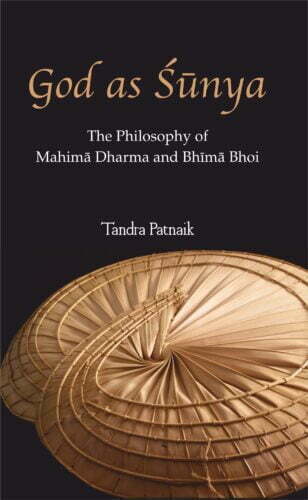
This volume is centred around Bhima Bhoi, the chief protagonist of Mahima Dharma of Mahima Svami, and takes this dharma to a meaningful logical conclusion. Bhima Bhoi presents through his lyrical compositions rarefied concepts like Shunya-Brahman, identity between jiva and Brahman, the relation between brahmanda and pinda and bhakti as atmajnana.
The philosophy of Mahima Dharma, a religious tradition of Odisha, is centred around the concept of God as Shunya-Brahman, and is remarkable for its stance towards religion, man and society. Mahima Dharma, though very much a part of the Indian religio-philosophical tradition, boldly defies idolatry, meaningless rites, religious pomposites and social discrimination, based on varna dharmajati. Bhima Bhoi, the chief protagonist of this dharma, presents a shunya-centric metaphysics and takes it to a meaningful logical conclusion.
Bhima Bhoi, a well-known tribal poet of nineteenth-century Odisha, presents through his lyrical compositions rarefied concepts like Shunya-Brahman, identity between jiva and Brahman, the relation between brahmanda and pinda and bhakti as atmajnana. His words, choice of philosophical ideas and style of presentation bear the stamp of his predecessors, Pancasakha and Caitanya Dasa.
This volume concisely deals with the varied aspects of Indian religio-philosophic tradition such as God as shunya in other traditions, the genesis of Mahima Dharma and its approach and interpretation of Shunya-Brahman, the relationship between God and man, and the dissident stream of spirituality. It talks about the persona of Bhima Bhoi as a poet and a philosopher, and his contested status in the society; also the impact of other thought systems like Buddhism, classical Advaitism, Sanatana Dharma on Mahima Dharma.
Academic in nature, this book should propel the inquisitiveness of many a researcher on Indian religio-philosophic systems and students of philosophy and theological systems.
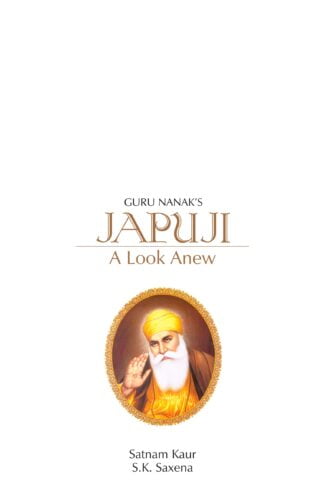
Japuji, Guru Nanak’s seminal work, also a daily prayer book, is the quintessence of his teaching. This book also attempts to explain the order of Guru’s prolific utterances, be they invocatory or just eulogistic. It has the Mul Mantra well interpreted. It also has the entire text of Japuji in Punjabi and Devnagari with Roman transliteration.
The ultimate reality, God or Brahman, may well be said to outstrip the reach of thought; but if we do not try, as thoughtfully as we possibly can, to get at what Guru Nanak really says in this seminal work Japuji a daily prayer book Þ how will we be able to benefit from his teaching, as he surely wanted fervently? In the entire history of mankind very few men have been so acutely sensitive to our multifarious suffering, and so keen to show us the way to transcend it for good, as Guru Nanak was. This makes the authors approach this holy work in a new perspective.
This volume tries to interpret Mul Mantra in such a way that the celestial attributes listed in it come to be interrelated, as they must be taken to be. It also attempts wherever possible to explain the order of Guru’s prolific utterances, be they invocatory or just eulogistic. However ebullient the Guru’s utterances may seem to be, they are always significant vehicles of some profound meaning; and also warranted by the running context.
Guru Nanak’s Japuji is a great work, yet this volume is expected to do some good to every thoughtful reader. At the end, the entire text of Japuji in Punjabi, Devnagari with Roman transliteration is given, making the text accessible to the masses who live outside India and need this prayer to be read in English.

Japuji, Guru Nanak’s seminal work, also a daily prayer book, is the quintessence of his teaching. This book also attempts to explain the order of Guru’s prolific utterances, be they invocatory or just eulogistic. It has the Mul Mantra well interpreted. It also has the entire text of Japuji in Punjabi and Devnagari with Roman transliteration.
The ultimate reality, God or Brahman, may well be said to outstrip the reach of thought; but if we do not try, as thoughtfully as we possibly can, to get at what Guru Nanak really says in this seminal work Japuji a daily prayer book Þ how will we be able to benefit from his teaching, as he surely wanted fervently? In the entire history of mankind very few men have been so acutely sensitive to our multifarious suffering, and so keen to show us the way to transcend it for good, as Guru Nanak was. This makes the authors approach this holy work in a new perspective.
This volume tries to interpret Mul Mantra in such a way that the celestial attributes listed in it come to be interrelated, as they must be taken to be. It also attempts wherever possible to explain the order of Guru’s prolific utterances, be they invocatory or just eulogistic. However ebullient the Guru’s utterances may seem to be, they are always significant vehicles of some profound meaning; and also warranted by the running context.
Guru Nanak’s Japuji is a great work, yet this volume is expected to do some good to every thoughtful reader. At the end, the entire text of Japuji in Punjabi, Devnagari with Roman transliteration is given, making the text accessible to the masses who live outside India and need this prayer to be read in English.
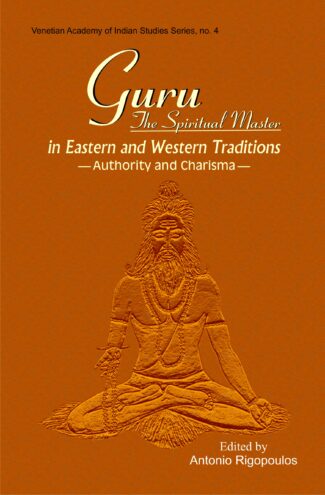
The book, examines the relevance attached to the institution of the guru with special reference to the religions and philosophies of India and explores the nature and function of the guru figure and the master-disciple interaction in the religious traditions of the world. It throws light on the link between overcoming fear, ritual death and immortality, and the guru figure in Indian traditions. The book will interest scholars of religion and philosophy particularly those studying Hindu and Buddhist religious-spiritual traditions.
The book, containing papers presented at a conference held in Venice, Italy, examines the relevance attached to the institution of the guru with special reference to the religions and philosophies of India. It explores the nature and function of the guru figure and the master-disciple interaction in religious traditions of the world including those of Hinduism, Buddhism, ancient Greek, Judaism, Islam, Christianity, Confucianism and native American traditions. It delves into the dynamics of the gurus influence and guru-disciple interaction that involves two aspects of power spiritual power and the very worldly socio-political and economic interests. It deals with characteristics and charisma associated with the figure of the spiritual master, his authority, pupils devotion for him, trials for a pupil, motivations of a guru, pandita as guru and recognition of the true master. It scrutinizes the difference in the Eastern and Western traditions vis-a-vis the guru-disciple relationship referring to a variety of sects, thinkers and works: the Mahabharata, Sufism, tantric traditions, Theravada and Vajrayana Buddhism, and the guruvada among Bauls of Bengal. The study meticulously unravels certain fundamental questions like sources of legitimation of religious authority within a religious-spiritual tradition. It throws light on the link between overcoming fear, ritual death and immortality, and the guru figure in Indian traditions. The book will interest scholars of religion and philosophy particularly those studying Hindu and Buddhist religious-spiritual traditions.
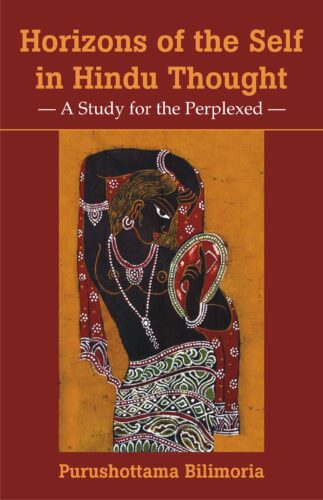
This volume discusses the different conceptions of the self and considers responses to many a question associated with the idea of the self, and on the destiny of the self in the context of karma, dharma, death and rebirth. It also deliberates on how a Hindu would realize the fullest to total potential and purpose of the self.
There is a variety of competing ideas about the nature of self in the Hindu tradition. Efforts to bring them together under a unitary conception were underway for many centuries. Much of the eighteenth- and nineteenth-century Oriental scholarship and the latter-day popularist movements made considerable effort to obscure the complexity and diversity of the idea of the self and its horizon in the broad spectrum of Hindu beliefs.
This modest study discusses the different conceptions of the self, and answers questions such as what is the self? and where does the self come from? How does the personal self retain its identity over time and space? In answering these questions it draws from the Vedic texts, Upanishads and the Vedanta system, especially Advaita (non-dualism). It also looks at the Samkhya system and its radically different conception of the self, which varies considerably from that of Upanishadic formulation. Buddhist and latter-day criticisms of the Hindu positions on the self via the neo-self theory are discussed.
The book also addresses questions such as what happens to the self, what does it do? where does it go? and where ought it go? discussing fate or destiny of the self in the context of karma, dharma, death and rebirth. Issues such as ends or goals towards which a person has to strive, realizing the fullest potential and purpose of the self, are well deliberated upon. Shankaras concept of the self and critique of the non-self are also examined.
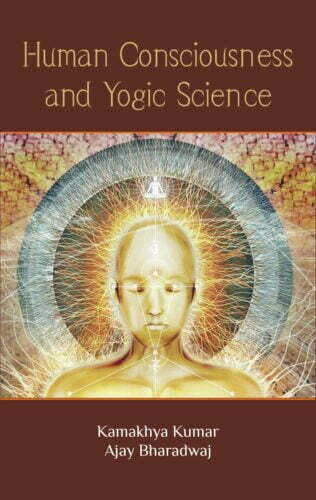
This volume addresses and analyses the different aspects of yoga and consciousness using scientific and pedagogical tools. It has been structured as a textbook on yoga and conforms to the course content of yogic science of Indian universities and should serve as an authentic reference book on the subject.
This volume addresses and analyses the different aspects of yoga and consciousness using scientific and pedagogical tools to fit well into an academic framework. The essence of yoga is the search to know our true selves to discover the real nature of consciousness. It starts with the body, goes to the mind and aims to realize the inner nature. Yoga is a way of life; it provides excellence in action; it removes our own evils and weaknesses, leading us to a higher level of consciousness paving the way for peace, bliss and harmony.
This book has been structured as a textbook on yoga. It conforms to the course content of yogic science of Indian universities and should serve as an authentic reference book on the subject. Efforts have been made here to navigate the readers with different aspects and planes of yoga and consciousness smoothly.
While dealing with topics such as the concept, science, psychology, and problems and challenges of consciousness, this volume delves deep into topics like human consciousness in philosophical thought; yoga and expansion of consciousness; and the current issues in the science of consciousness and yoga. It also familiarizes one with the different methods of evolution of consciousness in Buddhism, Christianity, Hinduism, Islam, Jainism and Sikkhism.
This book is specifically targeted at university teachers and students of yogic science. It should also raise keen interest among practising psychologists, psychoanalysts and general readers.
| There are no products |